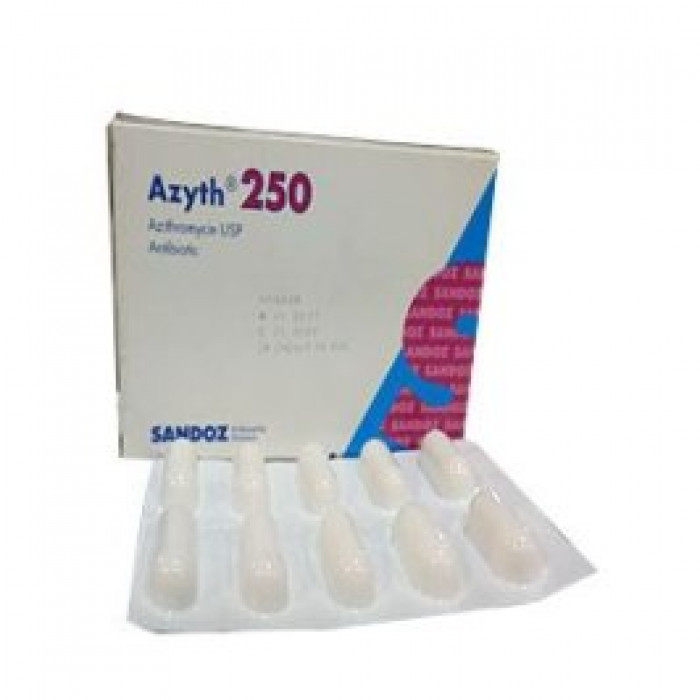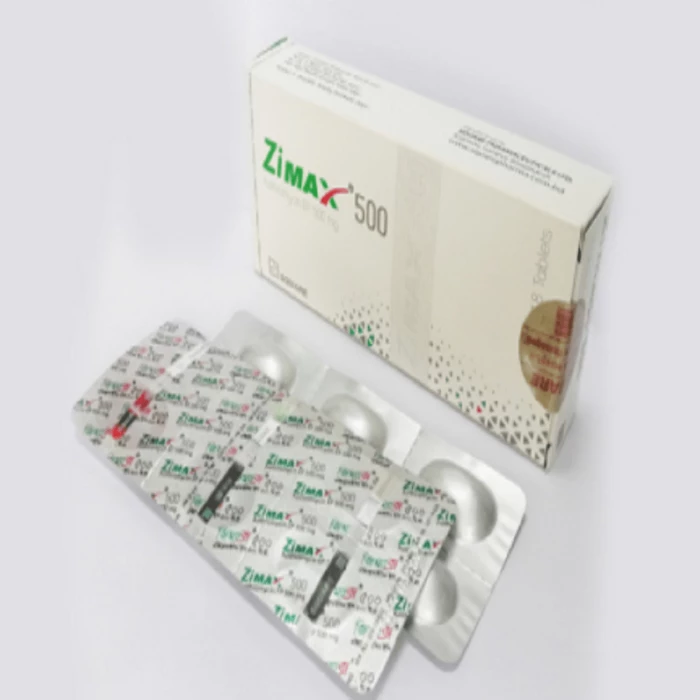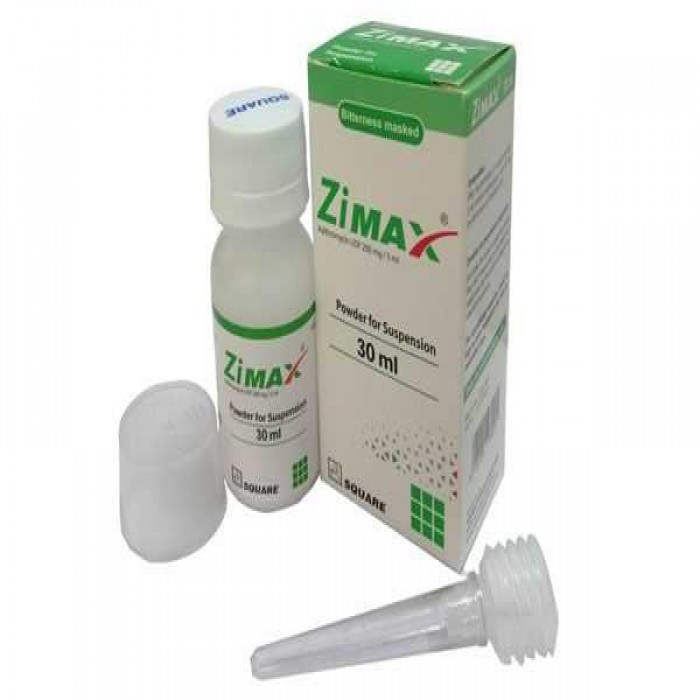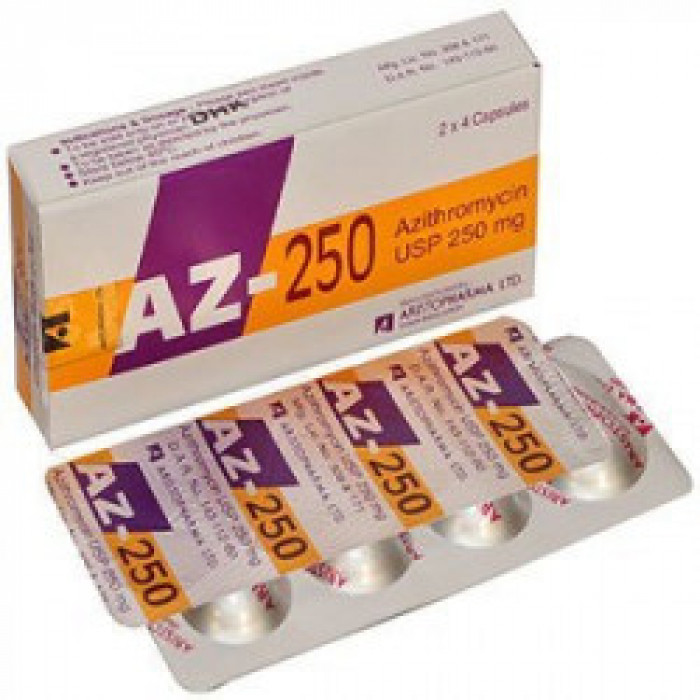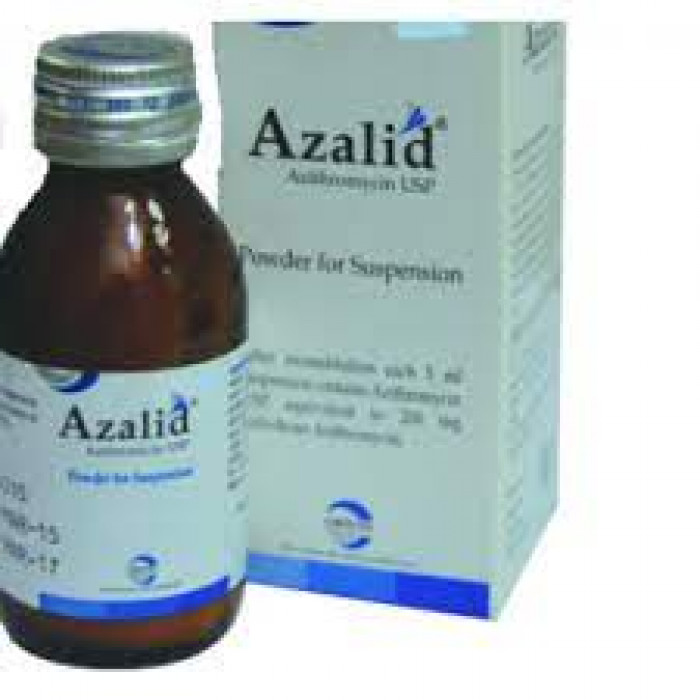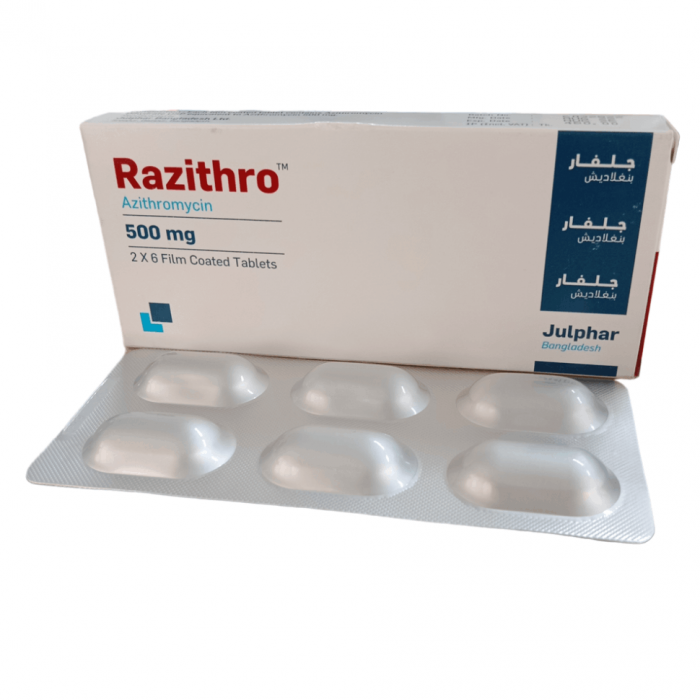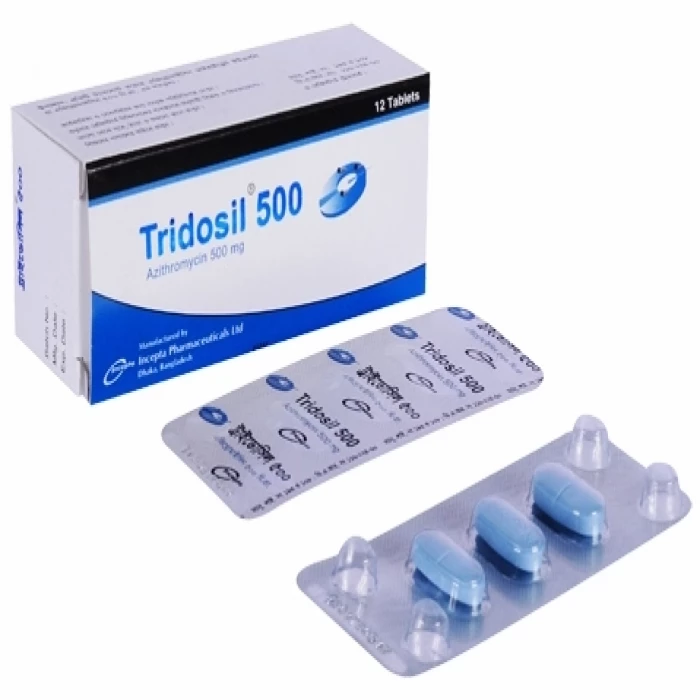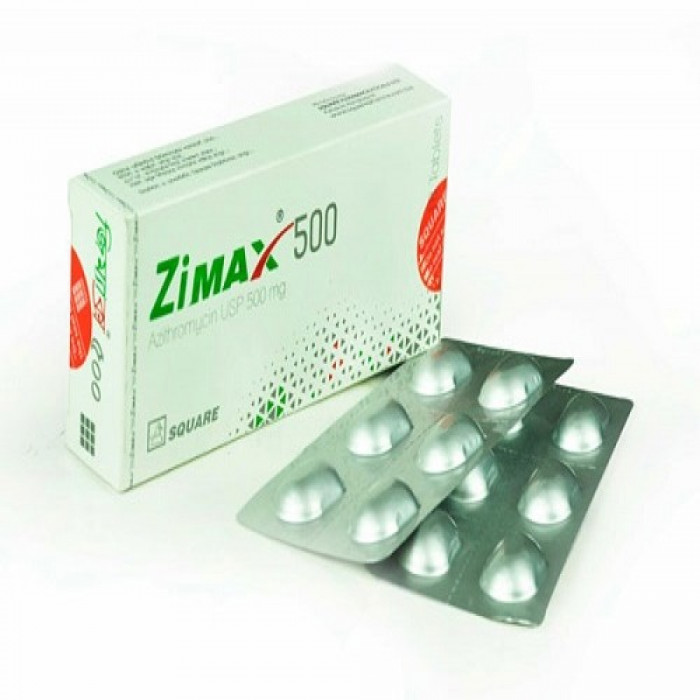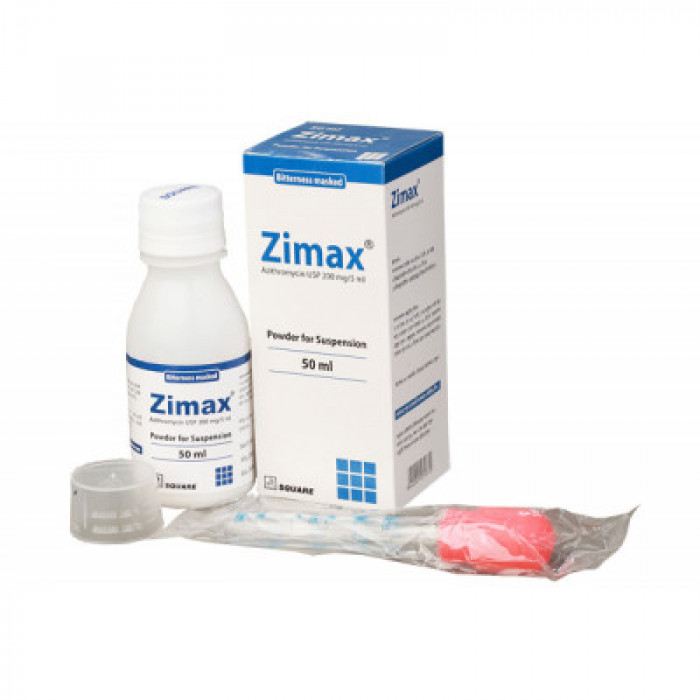
✔ 100% Authentic Product
👁️ Currently Viewing 4093
Zimax Suspension 50ml
Zimax Suspension is a kind of antibiotic. It is widely prescribed to children to treat a variety of bacterial infections that affect the ear, eyes, nose, throat, lungs, skin, and gastrointestinal tract.
Discount
Price: ৳ 209
MRP:
৳
220
5%
Off

100% Genuine Products, Guaranteed

Safe & Secure Payments, Always

Fast, Secure & Efficient Delivery

Proper Packaging
 Cash on Delivery - All over Bangladesh
Cash on Delivery - All over Bangladesh Regular Delivery - 12-24 Hours, Dhaka City* Charge Tk.39-59
Regular Delivery - 12-24 Hours, Dhaka City* Charge Tk.39-59 Regular Delivery - 24-48 Hours, Other Cities* Charge Tk.99-110
Regular Delivery - 24-48 Hours, Other Cities* Charge Tk.99-110
🌙 রমযান অফার 🌙
 ফ্রি ডেলিভারিঃ - ৭৯৯ টাকা+ অর্ডারে, ঢাকা
শহরে
ফ্রি ডেলিভারিঃ - ৭৯৯ টাকা+ অর্ডারে, ঢাকা
শহরে ফ্রি ডেলিভারিঃ - ২৭৯৯ টাকা+ অর্ডারে, ঢাকার
বাহিরে
ফ্রি ডেলিভারিঃ - ২৭৯৯ টাকা+ অর্ডারে, ঢাকার
বাহিরে
📲 মোবাইল অ্যাপ অর্ডারে সাশ্রয় বেশী
-
Google Play Store থেকে ডাউনলোড
-
Apple Store থেকে ডাউনলোড
100% Genuine Products, Guaranteed
Safe & Secure Payments, Always
Fast, Secure & Efficient Delivery
Proper Packaging
 Cash on Delivery - All over Bangladesh
Cash on Delivery - All over Bangladesh Regular Delivery - 12-24 Hours, Dhaka City* Charge Tk.39-59
Regular Delivery - 12-24 Hours, Dhaka City* Charge Tk.39-59 Regular Delivery - 24-48 Hours, Other Cities* Charge Tk.99-110
Regular Delivery - 24-48 Hours, Other Cities* Charge Tk.99-110 ফ্রি ডেলিভারিঃ - ৭৯৯ টাকা+ অর্ডারে, ঢাকা
শহরে
ফ্রি ডেলিভারিঃ - ৭৯৯ টাকা+ অর্ডারে, ঢাকা
শহরে ফ্রি ডেলিভারিঃ - ২৭৯৯ টাকা+ অর্ডারে, ঢাকার
বাহিরে
ফ্রি ডেলিভারিঃ - ২৭৯৯ টাকা+ অর্ডারে, ঢাকার
বাহিরে- Google Play Store থেকে ডাউনলোড
- Apple Store থেকে ডাউনলোড
🌙 রমযান অফার 🌙
📲 মোবাইল অ্যাপ অর্ডারে সাশ্রয় বেশী
✅ Description:
Zimax Suspension is a medication containing Azithromycin, which is a type of Macrolide antibiotic used to treat bacterial infections in children. It is effective in treating various infections such as chest, throat, and nasal infections including bronchitis, pneumonia, tonsillitis, sore throat, and sinusitis. It is also used to treat ear infections, skin, and soft tissue infections, and sexually transmitted diseases caused by organisms such as chlamydia trachomatis/ Neisseria gonorrhea in affected children.
However, it is not recommended for use in children allergic to azithromycin, other macrolides, and/or ketolides. It is important to inform the doctor if the child has any medical conditions such as diabetes, myasthenia gravis, heart problems, liver problems, or kidney problems before administering Zimax Suspension.
Zimax Suspension is only used in children and adolescents below 18 years and is not recommended for use in pregnant or breastfeeding women or elderly patients. The medication may cause common side effects in children such as stomach cramps, nausea, diarrhea, flatulence, dizziness, headache, skin rash, or itching. If these symptoms worsen, it is recommended to consult the doctor.
Safety Advices

Alcohol
Zimax Suspension is not recommended for use in pregnant women as it is used only in children.

Pregnancy
Zimax Suspension is not recommended for use in pregnant women as it is used only in children.

Breastfeeding
Zimax Suspension is not recommended for use in pregnant women as it is used only in children.

Driving
There are no data available about the influence of Zimax Suspension on the ability to drive or operate machines. However, Zimax Suspension may cause dizziness and seizures so make sure you are not affected before driving or operating machinery.

Kidney
Zimax Suspension should be administered with caution in children with kidney problems such as impaired renal function. Consult your doctor before administering the medicine to the child.

Liver
Zimax Suspension should be administered with caution in children with liver problems such as impaired hepatic function. Consult your doctor before administering the medicine to the child.
✔️ Uses of Zimax Suspension
- Treatment of Bacterial Infections
✔️ How Zimax Suspension works?
works by reducing bacterial protein synthesis (which is required for the bacterium to proliferate), resulting in its death and so stopping its growth and infection spread in afflicted individuals.
✔️ Side Effects of Zimax Suspension
- Diarrhea
- Stomach pain
- Difficult or painful urination
- Nausea and vomiting
- Fever
- Acid or sour stomach
- Excessive air or gas in the stomach
- Chest pain
- Dizziness
- Loss of appetite
✔️ Quick Suggestions
- Your child must complete the entire course of this medicine. Stopping too soon may cause the bacteria to multiply again, become resistant, or cause another infection.
- Give Zimax Suspension 200mg/5ml with food to avoid an upset stomach.
- Encourage your child to drink plenty of water in case diarrhea develops as a side effect.
- Zimax Suspension 200mg/5ml will not be effective for viral infections. However, the doctor may prescribe this medicine in case of a secondary bacterial infection. So make sure to speak to your child’s doctor first.
- Avoid taking too many calcium-enriched foods and drinks as it might affect the working of Zimax Suspension.
- Only give Zimax Suspension 200mg/5ml to your child for their current infection. Never save medicine for future illnesses.
- Stop the medicine and contact the doctor immediately if your child develops an itchy rash, facial swelling, and breathing difficulties soon after the intake.
✔️ Indications of Zimax Suspension
Used in pediatric patients:
- To treat infections caused by bacteria and other micro-organisms which include chest, throat, and nasal infections
- To treat ear infections such as acute otitis media and skin & soft tissue infections such as abscesses or boil
- To treat sexually transmitted diseases caused by organisms such as chlamydia trachomatis/ Neisseria gonorrhea
✔️ Pharmacology
Azithromycin can be taken orally without the need for protection from stomach acids since it is acid-stable. The drug is rapidly absorbed, and its absorption is more noticeable on an empty stomach. Peak concentration is typically reached in 2.1 to 3.2 hours for oral forms in adults. Azithromycin is effectively transported to the site of infection due to its high concentration in phagocytes. It is highly lipid soluble and can be caught by particles, leading to its concentration in tissues being over 50 times higher than in plasma.
A single large dose of azithromycin can maintain bacteriostatic levels in infected tissue for several days because of its long half-life. The mean apparent plasma clearance is 630 mL/min, and the terminal elimination half-life is 68 hours after a single 500 mg dose. The drug's significant absorption and subsequent release from tissues prolong the terminal half-life. Biliary excretion is one of the primary elimination pathways for azithromycin, with urinary excretion accounting for about 6% of the prescribed dose.
Examples of gram-positive, facultative, aerobic bacteria susceptible to azithromycin include Staphylococcus aureus, Streptococcus agalactiae, Streptococcus pneumoniae, and Streptococcus pyogenes. Examples of gram-negative, aerobic, and facultative bacteria include Neisseria gonorrhoeae, Haemophilus influenzae, Moraxella catarrhalis, and Haemophilus ducreyi. Non-bacterial microorganisms, such as Mycoplasma pneumoniae, Chlamydia pneumoniae, and Chlamydia trachomatis, are also susceptible to azithromycin. The production of beta-lactamase should not affect azithromycin's efficacy. Gram-positive, aerobic, and facultative bacteria from the Streptococcus genus (Groups C, F, and G) and from the Viridans genus are also susceptible to azithromycin.
✔️ Dosage & Administration of Zimax Suspension
This medication can be taken orally in tablet or suspension form, with or without food depending on the type of medication. The oral suspension should be used within 10 days after reconstitution. The extended-release oral suspension should be taken on an empty stomach within 12 hours of reconstitution and is only given in a single dose.
- For adults, the recommended doses vary depending on the condition being treated, ranging from 500mg once daily for 3 days to 2g as a single dose. There is no need for dosage adjustment for elderly or hepatically impaired patients, and no adjustment is needed for renal-impaired patients either.
- For children, the recommended dose varies based on the condition being treated and the child's weight, with doses ranging from 10mg/kg/day to 60mg/kg once. Renal impairment does not require dosage adjustment.
Administer Zimax Suspension to the kid as directed by your doctor. Shake vigorously before using. The specific amount and length of treatment for your kid will be determined by your doctor based on the child's age, body weight, and medical status.
✔️ Interaction
ZiMax absorption is lowered when food and antacids are present. ZiMax should not be used in patients who are receiving ergot alkaloids because it may cause ergotism due to an interaction between azithromycin and the cytochrome P-450 system. When administering digoxin and cyclosporin at the same time, care should be taken because macrolides raise their plasma concentrations. Azithromycin does not interact with Warfarin, Theophylline, Carbamazepine, Methylprednisolone, or Cimetidine.
✔️ Contraindications
Patients who are hypersensitive to azithromycin or any other macrolide antibiotic should avoid taking it. Ergot derivatives and azithromycin should not be taken together. Patients with hepatic disorders should avoid azithromycin.
✔️ Pregnancy & Lactation
Zimax belongs to category B for use during pregnancy. Animal studies have shown that Azithromycin does not have any harmful effects on the developing fetus. However, there is not enough research on pregnant women to confirm its safety. Therefore, Azithromycin should only be used during pregnancy if it is absolutely necessary and there are no other options available.
It is not known whether Zimax is present in breast milk. Hence, if Azithromycin is given to a nursing woman, caution should be exercised.
✔️ Precautions & Warnings
- If you have liver problems such as jaundice, muscle problems like myasthenia gravis, heart rhythm disorder such as arrhythmia, or electrolyte imbalance like low potassium or magnesium levels, you should inform your doctor before taking Zimax Suspension.
- This medicine may cause diarrhea in rare cases, and if you experience watery or bloody diarrhea, stop taking the medicine and contact your doctor immediately. However, do not take any anti-diarrheal medication without consulting your doctor first.
- It is unclear whether Zimax Suspension can harm the baby during pregnancy. If you are pregnant, planning to become pregnant, or breastfeeding, you should consult your doctor before using Zimax Suspension. If you are allergic to azithromycin or other macrolide antibiotics, do not take Zimax Suspension.
- Inform your doctor if you are using cholesterol-lowering medications like simvastatin or lovastatin, anti-gout or anti-arthritis drugs like colchicine, or medication for treating overactive bladder like tolterodine.
- Zimax Suspension is not recommended for patients with pneumonia who are considered unsuitable for oral therapy due to moderate to severe illness or risk factors.
✔️ Storage Conditions
Protect from light and moisture by storing in a cool, dry place below 30°C. Keep out of children's reach.
⚠️Disclaimer:
At ePharma, we’re committed to providing accurate and accessible health information. However, all content is intended for informational purposes only and should not replace medical advice from a qualified physician. Please consult your healthcare provider for personalized guidance. We aim to support, not substitute, the doctor-patient relationship.






